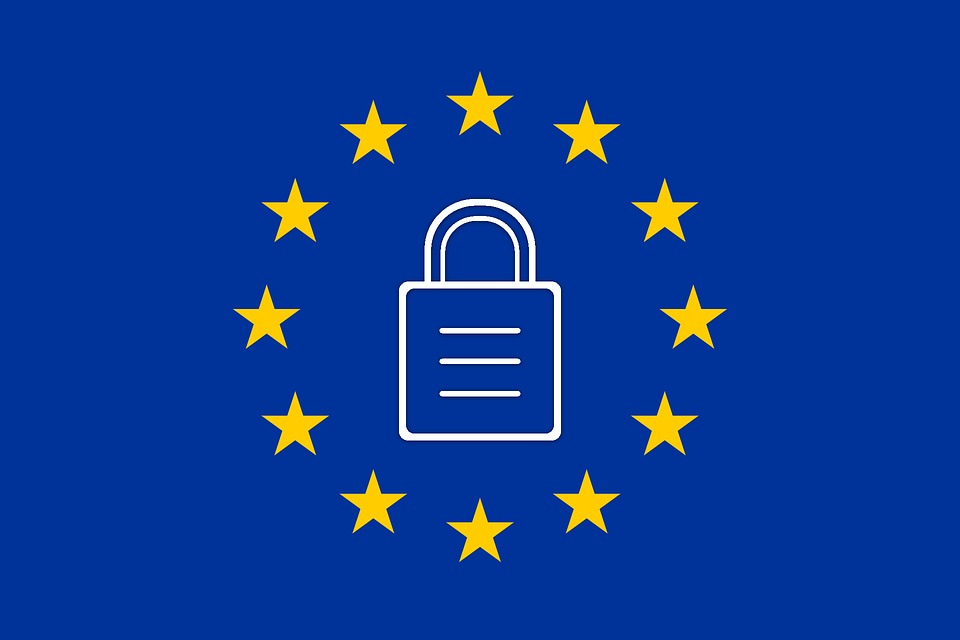We are living in the era of data-driven retail where an improved shopping experience results in greater sales, a higher chance of brand advocacy, and regular visits. But to provide this “improved” shopping experience, businesses first need to learn who their customers are and what they want. And this is not something that can be achieved by a company through mere guesswork. Guesswork is no good — just ask that physicist in “Transformers 5.” Exact calculations are what is needed! For the retailer, it requires a thorough analysis of the data collected. However, regular leaks and hacks have proved that retailers are not equipped to handle the burden of data governance and control. As a result, the General Data Protection Regulation (GDPR) goes into effect on May 25. And it’s applicable for all kind of businesses that deal with digital data. But for GDPR and retailers, some of the compliance issues may be unique. But it also may be a golden opportunity.
What is GDPR?

GDPR is going to change the way businesses manage and process data, giving customers and citizens more control as a result. At the same time, the regulation will provide businesses with the opportunity to foster better customer relationships, enhance the data management processes, and streamline IT. But this won’t be an easy transition.
Despite originating from the European Union (EU), the impact of GDPR extends far beyond, especially as more businesses continue to go digital and global. The stricter requirements of the GDPR could pose certain challenges for various organizations. A lot of companies are still not ready for such extensive changes, and the new regulation is being treated as a law that could negatively affect various businesses just like higher taxes which also negatively affect businesses and job creation.
According to the new compliance regulation, any company that experiences a data security breach may have to pay severe fines, which can go upwards of €20 million (about $23 million in U.S. dollars) or 4 percent of the annual turnover. What this means is, a few smaller companies are likely to go out of business if they do not comply with the new regulation.
Thankfully, there are proven technologies, methodologies, and practices that can simplify the journey of a company toward compliance, develop a strong foundation to maintain and govern it, and even contribute toward business performance and compliance methods. What’s more, once you get past the issues, you will be able to see the actual opportunity presented by this change — a catalyst capable of unlocking the true value of data. Thus, the new ruling can offer retailers the incentive they need to finish a task they have been postponing for years.
Implications of GDPR and retailers

The effects of GDPR and retailers can be far-reaching, permeating every level of the company. For starters, the new regulation may change how HR maintains and organizes the internal data of the company employees. On the other hand, GDPR can completely alter how marketing, service, and sales teams process and store huge chunks of data of the customers throughout different processes. In the end, a company must prepare to exhibit compliance in three major areas by the GDPR enforcement date:
- The capacity to effectively handle the rights of individuals, including data rectification, protection, and erasure.
- The capacity to adhere to the new principle of accountability by exhibiting the way compliance can regularly be achieved via documentary evidence.
- The capacity to govern based on the established controls and policies within the organization.
Meeting these criteria will enable a company to improve their data governance efforts in these four areas:
Ready to become a part of the digital age

Most retailer’s stores in this digital age understand just how important it is to be a data-driven organization. As a result, they actively try to transform themselves, so they can remain relevant.
There is no way a company can understand their consumers, develop suitable experiences and offers, and engage their customer base anywhere and anytime they wish without the use of data. That is like guessing. Not every situation can be predicted like Thomas Edison did with the light bulb and Steve Jobs did with the iPod. Edison knew that humanity wanted easier access to light and Jobs knew that many people would want to walk around with hundreds of songs in their pocket. Edison and Jobs both changed the world.
For this reason and more, a business must have a clear idea about the kind of personal data they are collecting, formulate a simple way of implementing the same, and be thorough when it comes to processing and governing the collected information.
Thus, with GDPR and retailers, businesses can finally allow customers to choose how they share data. The decision of the consumers will affect what, how, and when they engage the retailers. If a particular company develops the right proposition and protects customer information, they can choose to strengthen their relationships. On the other hand, customers can punish those companies that do not safeguard their data.
Better understanding of what resources a company has and how they can use the same
In the modern age, retailers are focused on scoping out the right data so they can mine and store it later for personal data. But all this comes to an end with the start of GDPR.
The new regulations require the data holders to check and remove data they no longer need. As a result, retailers must adopt a more strategic way of thinking to determine what information holds significance and how it can be used to add more value, where they can invest it, and what must be removed to protect themselves. And this is a good effect of GDPR and retailers: After all, if the data no longer exists, there is no way it can be stolen.
Fixing the problem of technical debt

When there is a legacy system failure, not only do the brands suffer losses, but the customers get hurt in the process too. However, in the case of GDPR, the emphasis is on overcoming this problem of organizations looking to “do later.” This is important because retail transformations of any kind tend to involve new systems and processes that are not suitable for the purpose. So, it becomes a major platform for growth rather than just remediation.
New work techniques
The task of mapping out data-process flows and structures might not sound very interesting or strategic, but it happens to be a key principle of many successful data-driven businesses. A company that does not follow these processes will not be in a position to grow and serve their customers like The Home Depot, Amazon, Wal-Mart, and so on are doing right now. With the introduction of GDPR, retailers must reevaluate the way they process the collected data, and present new business opportunities to reimagine the kind of value the data is capable of bringing.
Embrace the rules
All forms of modern business depend on data. But with GDPR and retailers, the quicker they embrace the new rules as a major factor for change, the better they will fare in the long run.



